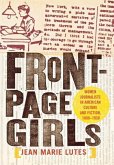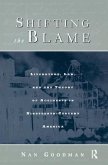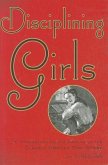Observers from Alexis de Tocqueville to Lionel Trilling have found the United States wanting in what it takes to produce a novelist of manners--namely, a rich enough past and sufficiently stratified classes. In a work that recovers the broader meaning of "manners" for past generations, Susan Goodman demonstrates that American writers have consistently tied the subject of national identity to the norms and behaviors of everyday life--that, in fact, the novel of manners is a dominant form of American fiction. Goodman concentrates on a cluster of writers--William Dean Howells, Henry James, Edith Wharton, Willa Cather, Ellen Glasgow, and Jessie Fauset--whose analyses of manners offer several distinct social histories. Under her scrutiny, these writers' works allow us to view the creative interaction of individual lives, social dynamics, and historical legacies--what might be called the panorama of manners themselves--as well as the development of American fiction. Above all, Goodman shows that novels of manners are central to American literature, and that these novels speak in a large cultural way about who and what composes America.
Hinweis: Dieser Artikel kann nur an eine deutsche Lieferadresse ausgeliefert werden.
Hinweis: Dieser Artikel kann nur an eine deutsche Lieferadresse ausgeliefert werden.








